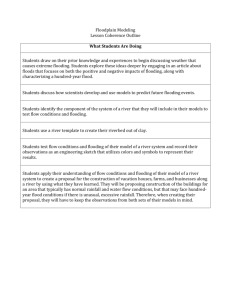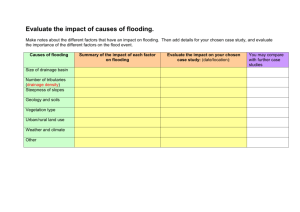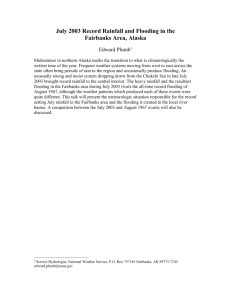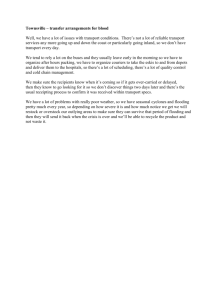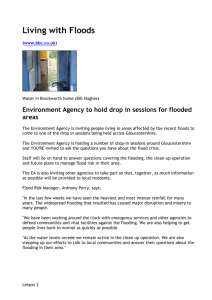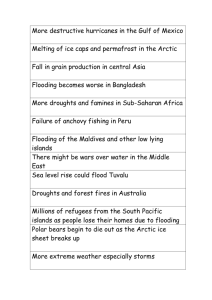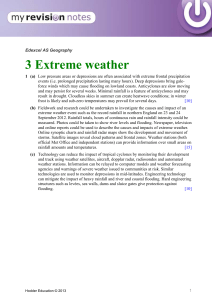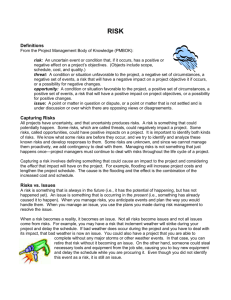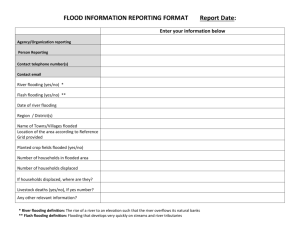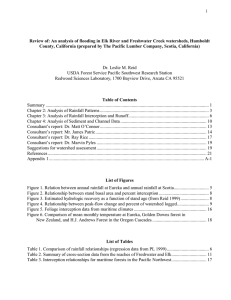msword
advertisement
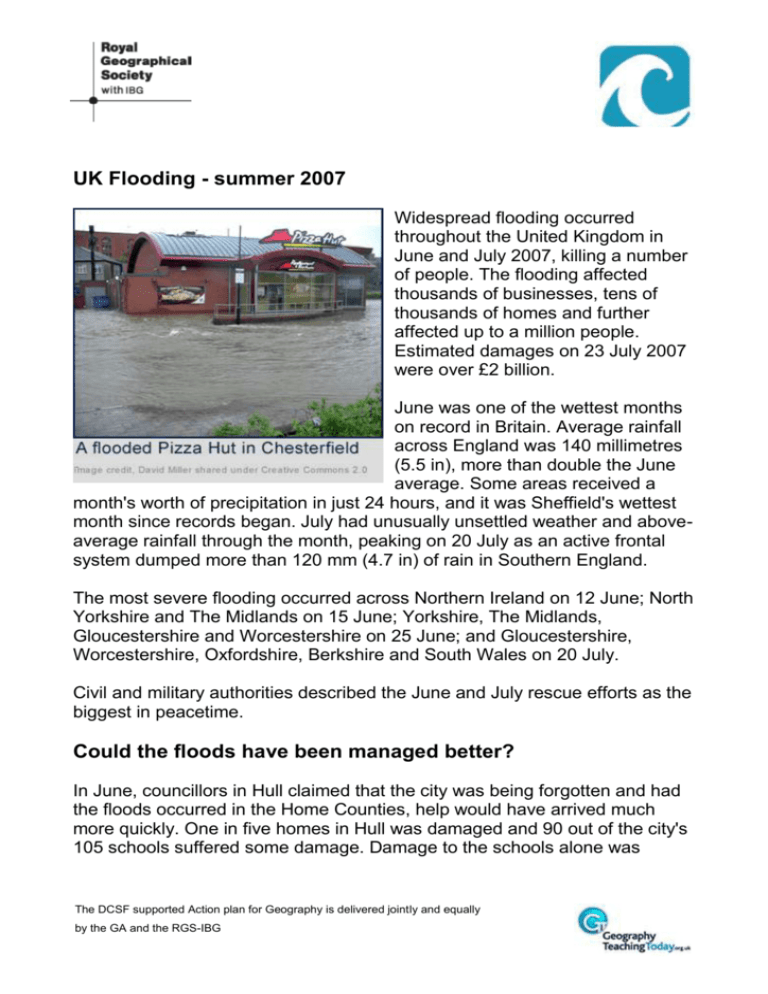
UK Flooding - summer 2007 Widespread flooding occurred throughout the United Kingdom in June and July 2007, killing a number of people. The flooding affected thousands of businesses, tens of thousands of homes and further affected up to a million people. Estimated damages on 23 July 2007 were over £2 billion. June was one of the wettest months on record in Britain. Average rainfall across England was 140 millimetres (5.5 in), more than double the June average. Some areas received a month's worth of precipitation in just 24 hours, and it was Sheffield's wettest month since records began. July had unusually unsettled weather and aboveaverage rainfall through the month, peaking on 20 July as an active frontal system dumped more than 120 mm (4.7 in) of rain in Southern England. The most severe flooding occurred across Northern Ireland on 12 June; North Yorkshire and The Midlands on 15 June; Yorkshire, The Midlands, Gloucestershire and Worcestershire on 25 June; and Gloucestershire, Worcestershire, Oxfordshire, Berkshire and South Wales on 20 July. Civil and military authorities described the June and July rescue efforts as the biggest in peacetime. Could the floods have been managed better? In June, councillors in Hull claimed that the city was being forgotten and had the floods occurred in the Home Counties, help would have arrived much more quickly. One in five homes in Hull was damaged and 90 out of the city's 105 schools suffered some damage. Damage to the schools alone was The DCSF supported Action plan for Geography is delivered jointly and equally by the GA and the RGS-IBG estimated to cost £100 million. The Bellwin Scheme for providing aid after natural disasters was criticised as inadequate by Hull MP Diana Johnson. The lack of media coverage of flooding in Kingston upon Hull led the city council leader Carl Minns to dub Hull "the forgotten city". In July, the Government came under mounting criticism of its handling of the crisis, the fact that responsibilities were spread across four departments and no single minister could be held responsible, and the fact that the Army had not been called in to assist.The Observer newspaper stated on 22 July 2007 that the Government had been warned in the spring by the Met Office that summer flooding would be likely because the El Niño phenomenon had weakened, but no action was taken. In response to the criticism, Environment Secretary Hilary Benn said on the BBC's Sunday AM programme that "This was very, very intense rainfall, with five inches in 24 hours in some areas; even some of the best defences are going to be overwhelmed". He praised the way the emergency services had dealt with "unprecedented" levels of rainfall and said he had "total confidence" in the response of the Environment Agency. Conservative leader David Cameron called for a public inquiry into the flooding after visiting Witney, the main town in his Oxfordshire constituency. Liberal Democrat leader Sir Menzies Campbell accused the government of lack of preparation leading to a "summer of suffering", and said, "With sophisticated weather forecasting as we now have, particularly in relation to what’s happened over the weekend, there are quite a few questions as to how it was that flood-prevention measures were not in place or were not more effective." The DCSF supported Action plan for Geography is delivered jointly and equally by the GA and the RGS-IBG
